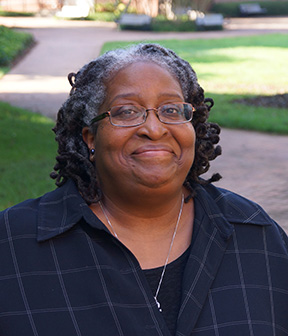Hero background image default
A Beloved Community
Columbia Theological Seminary is committed to promoting the goals of diversity, equity and inclusiveness in all aspects of its theological and education enterprise. We seek to acknowledge and respect the differences and gifts of all as we work toward becoming a more just and relational community.
The Becoming Project came to life through Columbia Theological Seminary’s vision to become a more faithful, just, and equitable community. In 2020, constituents of CTS met in caucus groups to provide input on their experience and perceptions. In October 2020, the Transformative Community Conference was held to bring the community together to focus on that input and envision new ways of being together.
Upon the completion of the Transformative Community Conference, the Board of Trustees convened the Implementation Task Force to carry forward the work of discerning and recommending ways the seminary could move towards a more faithful, just, and equitable community.
Now under the leadership of President Aloyo we are continuing this work through the President’s Advisory Cabinet on Accountability, Belonging, Inclusion, Diversity, and Equity (PAC-ABIDE). The vision and purpose of PAC-ABIDE are to provide a platform for leadership, dialogue, and direction for the continuous assessment and improvement of Seminary-wide efforts to create and sustain a more equitable, diverse, and inclusive community of learners.

By Dr. Marcia Riggs
In her book, Killing Rage: Ending Racism, black feminist author bell hooks writes:
“Beloved community is formed not by the eradication of difference but by its affirmation, by each of us claiming the identities and cultural legacies that shape who we are and how we live in the world.”
Beloved community is a metaphor that resonates for many political activists and persons of faith who engaged in the Civil Rights Movement, and consequently, it has the power to evoke in us a desire for justice and love.
In the quest for racial justice it has functioned as an ideal end that we can achieve.
That ideal end has been, and continues for many, to be a colorblind society.
For many people, this statement by Martin Luther King, Jr. captures what they seek: “I have a dream that my four little children will one day live in a nation where they will not be judged by the color of their skin, but by the content of their character.”
The interpretation of that quote is most often that we will become a colorblind society, that we will no longer acknowledge racial differences.
However, here’s another interpretation that aligns more with the hooks’ quote at the beginning of this post: When we become a society (and church) that acknowledges and respects the differences (identities and cultural legacies) among us, then we will have the basis for becoming a beloved community that is a moral community.
Ethicist William Sophn says, “Moral community refers to the network of those to whom we recognize an ethical connection through the demands of justice, the bonds of compassion, or a sense of obligation.”[1]
Furthermore, Sophn suggests that images from social traditions and popular speech guide our sense of moral community because such images are not morally neutral.
Importantly, the meaning of beloved community emerges from the images we use to describe it.
My contention is that we do not have adequate images for beloved community in the 21st century.
Our images for envisioning multicultural society, such as salad bowl or mosaic, are certainly an improvement over the melting point image that stressed assimilation and colorblind society.
I contend that we must grapple for new images for a 21st century understanding of what beloved community is to begin practicing it.
Practicing beloved community means affirming the following:
1. Beloved community comes into being as we encounter one another in a quest for authentic moral community. Our understanding of the ethical connections of justice and bonds of compassion between us emerges out of our intercultural encounters. We have been created to be in relationship with one another, and we discern what is ethical as we encounter others with whom we seek or find ourselves in relationship. We are constructing beloved community each time we allow encounters with one another.
2. We will engage one another courageously, not judgmentally. We engage from committed but not absolutist ethical postures. We listen to criticism from others and reflect upon it as part of self-criticism. When our criticism leads to conflict, we live into the tensions of that conflict because moral growth is a by-product of transformative conflict.
3. We will nurture moral imagination. Nurturing moral imagination means embracing narratives about our experiences and metaphors for what is good, right, responsible, and liberating as the basis of moral reasoning. We develop our capacity for moral imagination by exposing ourselves to images that portray alternative framings of ethical and theological concepts.
Marcia Y. Riggs, member of the CTS faculty since 1991; founder of Still Waters: A Center for Ethical Formation and Practices, a nonprofit educational organization offering transformative mediation training for religious leaders to engage issues of religion, conflict, and violence constructively. Currently serves as Erskine Love Professor of Christian Ethics.
[1] https://legacy.scu.edu/ethics/publications/iie/v7n2/spohn.html
©2023 Columbia Theological Seminary
Popular Topics